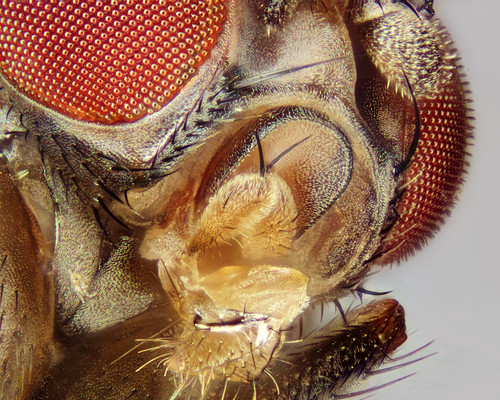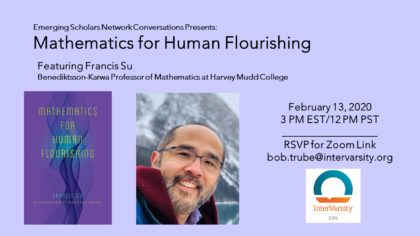
 )
)Since today is Darwin Day, some comment seems warranted–especially because I see which science & faith topics are most popular here on the blog. At the same time, I feel pretty conflicted about the idea. While I appreciate Darwin’s contributions to science, I also appreciate why honoring him specifically seems like a deliberate tweak of folks who find evolution challenging. And I think it’s possible to put too much focus on Darwin himself and exacerbate the impression that evolution was just an idea he had that caught on for ideological rather than scientific reasons. So let’s talk about Joseph Graves, Jr., the first African American to earn a PhD in evolutionary biology.
Graves is also the first to point out he has given himself that designation, based on his own substantial-but-possibly-not-exhaustive assessment of the field. He has done research on the biology and evolution of aging and written two books on myths about race related to biology. He also wrote a commentary for the journal Evolution: Education and Outreach to call attention to minority underrepresentation in biology, most specifically evolutionary biology: “African Americans in evolutionary science: where we have been, and what’s next.” I’d strongly encourage you to make the time to read the article for yourself. Graves writes with authority on a range of related historical topics, including the overall educational experiences of those of African descent and the shameful misuse of biology to justify their mistreatment. There are some sharply worded passages that may elicit reflexive defensiveness or skepticism, but don’t let such reactions be the end of the story. I never sensed that Graves was looking to be inflammatory or score points. Ultimately, he wants to make his corner of the scientific community more inclusive and he knows that will take concerted effort from everyone, so he’s trying to get as many folks on board as possible while being honest about the need for change.
Religion features prominently in the discussion. At one point, Graves describes himself as a “confirmed Episcopalian” which seems like a statement about his upbringing rather than his current beliefs. Whatever his personal views may be, he recognizes that students’ religious backgrounds and commitments can be a factor in their choice to pursue evolutionary biology as a career. He acknowledges that he used to think this would require a hard either-or choice, but is now inclined to help students see why such decisions are not necessary. Elsewhere, Graves draws principles for implementing anti-racist programs in the academy from the writing of pastor Joseph Barndt, an activist for anti-racism in the American church. Graves is clearly willing to work with Christians for greater equality and justice; I see no reason not to return the sentiment.
Finally, since the commentary piece mentions biology and race but does not go into detail, I wanted to make sure folks were familiar with the topic. The basic question is whether racial labels like “black” and “white” are meaningful biologically, telling us something about health or intelligence or anything beyond melanin expression. While some correlations have been reported, these are better explained by differences in exposures or other external factors than by genetics. There is more genetic variation with these groups than between them, and an individual is likely to be more similar genetically to members of other groups than members of their assigned group. These observations lead many to conclude that our social categories of race have little to do with overall biology.
Tomorrow ESN is hosting a webinar with mathematician Francis Su about his new book Mathematics for Human Flourishing. If this is anything like his last webinar (and why wouldn’t it be?), this will be worth your time. RSVP to Bob Trube (bob.trube at intervarsity.org) to get the link and a discount code for the book.

Andy has worn many hats in his life. He knows this is a dreadfully clichéd notion, but since it is also literally true he uses it anyway. Among his current metaphorical hats: husband of one wife, father of two teenagers, reader of science fiction and science fact, enthusiast of contemporary symphonic music, and chief science officer. Previous metaphorical hats include: comp bio postdoc, molecular biology grad student, InterVarsity chapter president (that one came with a literal hat), music store clerk, house painter, and mosquito trapper. Among his more unique literal hats: British bobby, captain’s hats (of varying levels of authenticity) of several specific vessels, a deerstalker from 221B Baker St, and a railroad engineer’s cap. His monthly Science in Review is drawn from his weekly Science Corner posts — Wednesdays, 8am (Eastern) on the Emerging Scholars Network Blog. His book Faith across the Multiverse is available from Hendrickson.

Leave a Reply